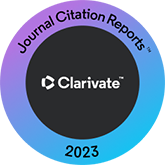Procedural law between traditionists, jurists and judges: the problem of yamīn ma' al-Shāhid
DOI:
https://doi.org/10.3989/alqantara.1999.v20.i2.473Abstract
Modem critical studies of Islamic law have noted the need for the study of the procedural law in Islam and the role of the judicial practice in its formation. Generally, it is believed that qāḍīs had freer hand regarding witness and method of proof in the early period, but gradually it became more restrictive and rigid. Scholars have suggested various dates ranging from the second half of the seventh century (Tyan) to the eighth (Schacht, Dannhauer), to the eleventh century (Coulson) for this development. These scholars have treated the doctrine of yamīn ma‛ al-shāhid (oath with one witness) as an exception to the Shariah procedure which, according to them, strictly and mechanically adhered to the doctrine of two witnesses. According to them, this doctrine emerged under local [Schacht (Egypt) and Dannhauer (Madina)] or Jewish (Patricia Crone) influence. The present paper argues that the doctrine must have grown against the historical setting of the Civil War (Taḥkīm period) when the questions relating qiṣāṣ, qawad, qasāma and ḥakam were discussed frequently with reference to the role of the Qur’ān and the common sunna and the need for reforming the institution of ḥakam was felt. On the basis of scattered statements of scholars close to that period supported by WaM"s remarks and we conclude that Mu‛āwiya introduced this method to reform the institution of ḥakam. The judicial practice of this doctrine also confirms that it was too widespread to call it a Medinese or local practice as claimed by the classical jurists, traditionists and some modem scholars.
Downloads
Downloads
Published
How to Cite
Issue
Section
License
Copyright (c) 2019 Consejo Superior de Investigaciones Científicas (CSIC)

This work is licensed under a Creative Commons Attribution 4.0 International License.
© CSIC. Manuscripts published in both the print and online versions of this journal are the property of the Consejo Superior de Investigaciones Científicas, and quoting this source is a requirement for any partial or full reproduction.
All contents of this electronic edition, except where otherwise noted, are distributed under a Creative Commons Attribution 4.0 International (CC BY 4.0) licence. You may read the basic information and the legal text of the licence. The indication of the CC BY 4.0 licence must be expressly stated in this way when necessary.
Self-archiving in repositories, personal webpages or similar, of any version other than the final version of the work produced by the publisher, is not allowed.














